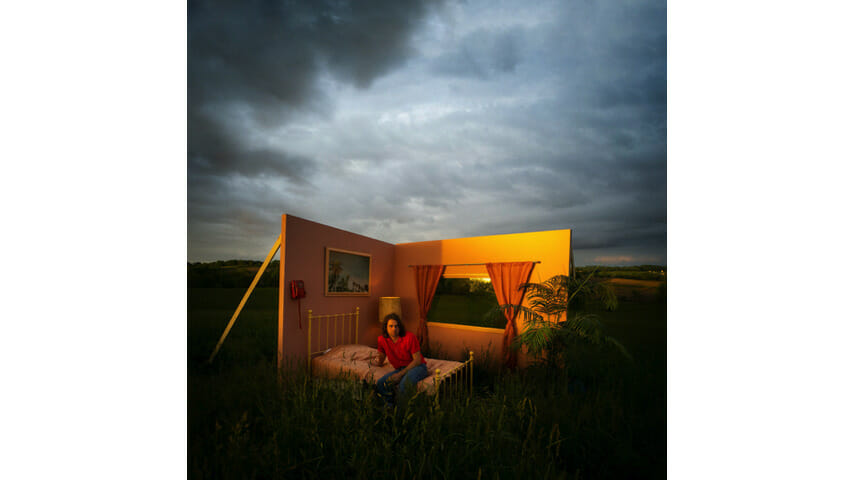Kevin Morby Keeps His Eyes on the Horizon on Sundowner

Kansas City-based seeker and singer/songwriter Kevin Morby, quietly quite prolific with six solo albums to his name, has long been concerned with heaven, earth and the intersection of the two—life and its limits. “Oh, I am on a ride / Measure the distance in time / And as sure as I was born / I will die,” he sang on the final track from his 2013 solo debut Harlem River, making peace with mortality over humble acoustic strums and mournful pedal steel. On his latest record Sundowner, Morby continues to contemplate the weight of existence, taking stock of the bleak and beautiful alike. He does so by moving from the sweeping spirituality of his previous album, 2019’s acclaimed Oh My God, to a far more specific location: Middle America, the familiar mystery at the center of a singular country. Written and demoed on a Tascam four-track in a shed in Morby’s Kansas City backyard, and recorded with producer Brad Cook in Tornillo, Texas (“We wanted to make sure the record was done far away from any coastline, and in the heart of America,” Morby explains in a letter accompanying the album), Sundowner is a warm and wistful collection that consistently captures the bittersweet feeling of a sunset: The sight is lovely, but fleeting, light’s glorious last gasp before it gives way to the darkness.
That feeling serves as Morby’s guiding light throughout the album, from its gentlest lows to its heartiest highs. He wisely opens Sundowner with one of the latter: “Valley” is pastoral and inviting, parlaying acoustic chords and a soft organ hum (Morby identifies his “WWII-era collapsible and slightly out-of-tune pump organ” as “the album’s secret weapon”) into a grand backdrop befitting its titular landform. Meanwhile, Morby’s lyrics establish his focus, encompassing the world around him as well as whatever lies beyond: “In the valley below / They all pretend not to know us,” he croons, later concluding, “Mama, all the stars are broken / For either me or you or us,” and leaving us to wonder which while his lead guitar ambles onward, gaining momentum and multiplying as it goes. The title track employs the album’s go-to stripped-down mixture of acoustic fingerpicking and quiet keys, with Morby zeroing in on “the moment that the sun runs from me”—a knife’s edge of emotion, as the time signalling that a sundowner will soon be at their saddest—and pleading, “Please / Don’t let the sun go down on me,” recontextualizing a classic rock line.
-

-

-

-

-

-

-

-

-

-

-

-

-

-

-

-

-

-

-

-

-

-

-

-

-

-

-

-

-

-

-

-

-

-

-

-

-

-

-

-








































